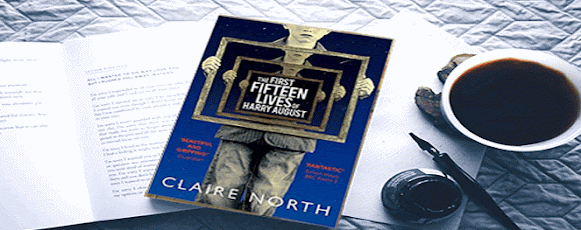NEW RESOLUTIONS
As one year comes to an end,
our minds turn to the new year ahead, a chance for a fresh start, and the inevitable
list of new year resolutions. What can
we do better next year? How can we change our bad habits, ditch our poor choices,
and replace them with new improved ones? How can we re-make our life and become
better versions of ourselves?
What if, instead of a “new” year, you were able to re-live the old one? You
would have all the memories of the year’s events and be able to make different
choices. If you have ever watched the movie, Groundhog Day, you will know the
story of Bill Murray’s character who relives the same day repeatedly. Imagine
if you re-lived, not a day, not even a year but a whole lifetime?
This is not intended to be a book review or promotion. However, last year I came
across a book that had a profound effect on me and my perspective on life. It
was a book by an author called Claire North. The book’s title is the first
fifteen lives of Harry August.
Harry August has an ordinary
life. He is born in Berwick-upon-Tweed in 1919 and dies in a hospital in
Newcastle in 1989. In the meantime, he has different jobs, various
relationships, and tries to move on from his difficult family life. But when he dies,
he finds himself as a child again, regaining his memories of his prior life.
This happens again. And again.
It is a brilliant book. There
are many books around the subject of time travel and stories of people that are
immortal. But, apart from Groundhog Day, I had not come across a book quite
like this.
It started me thinking, what would I do differently if I had my life to live
again? Would I study harder to get into a better school? Already that would
send my life in a different direction with different school friends. Would I choose
a different career, travel to new places, learn new skills, learn new
languages? Imagine your new year resolutions becoming “new life” resolutions.
I do a lot of work with children and young people from disadvantaged
backgrounds. It is sad to see 14-to-16-year olds already giving up on themselves.
I use this book in my teaching and mentoring.
I tell them the story and ask them to put themselves in Harry’s place. I ask
them to just imagine, here they are going around again. Equipped with the
memories of when they were here the last time, sitting in the same classroom. So,
what are they going to do differently this time around?
Of course, It does not always work. Often the kids just think that I am a crazy
old man and do not get the story at all. However, sometimes you see a paradigm
shift occurring. A small light bulb moment and a realization that perhaps they
can shape their own destiny if they want to.
In any event, I will highly recommend the book..





